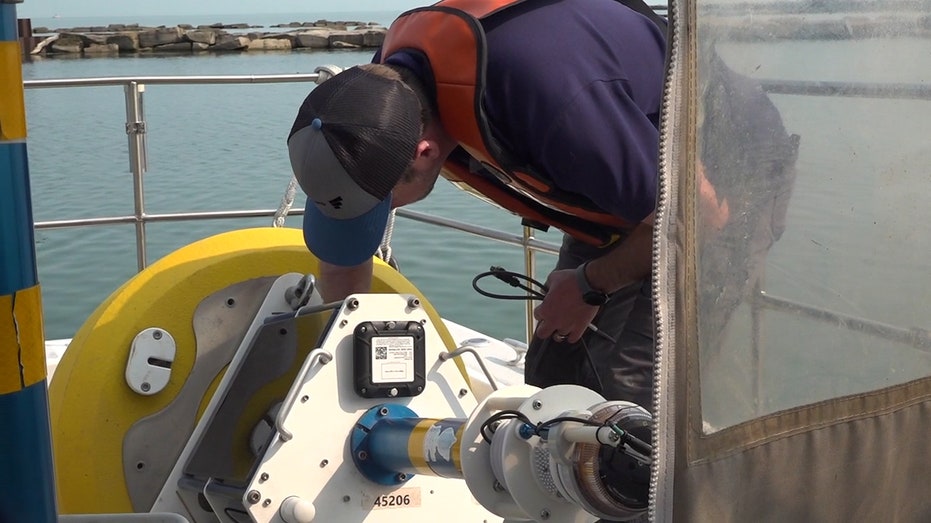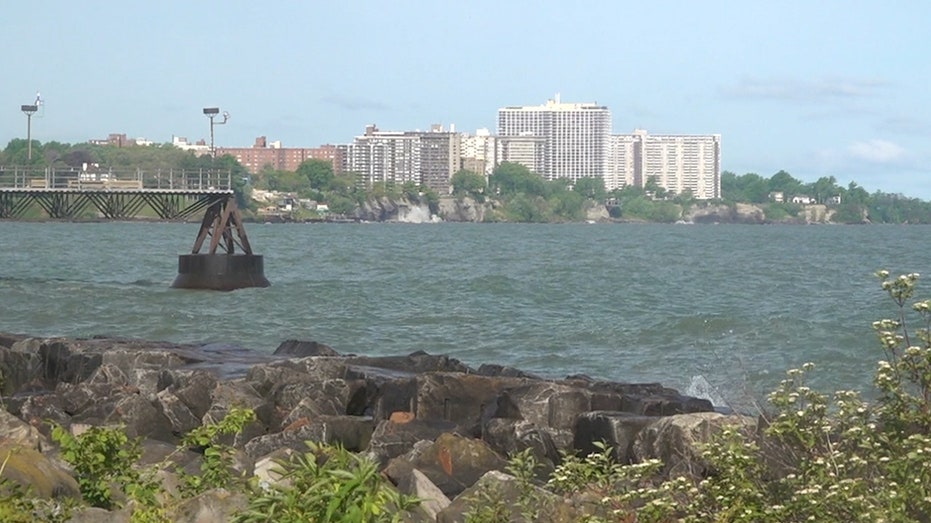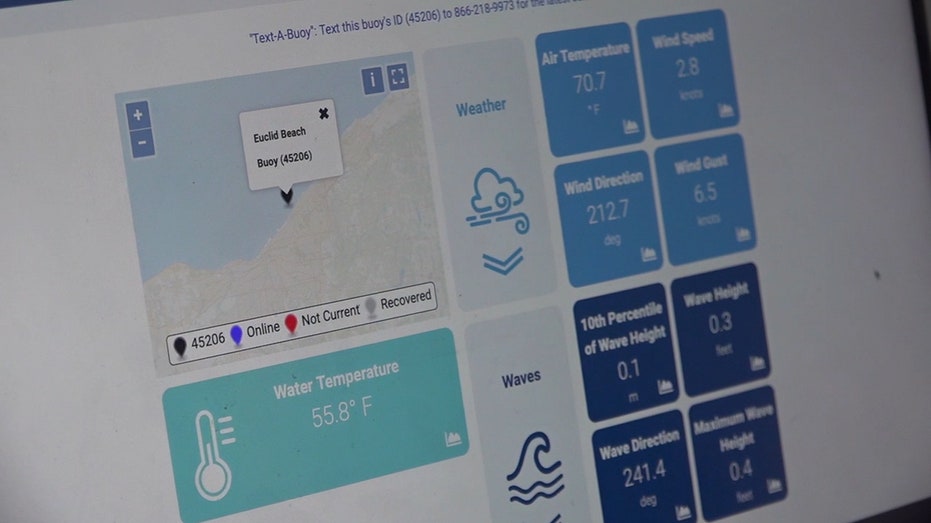Cleveland expands network of “smart buoys" to monitor Lake Erie water quality
This is the third year the network is being launched in order to give real-time data
Smart buoys monitor water quality on Lake Erie
Across Lake Erie, a network of digital monitors that serve as an early warning system for weather and water quality is now expanding.
CLEVELAND, Ohio – Across Lake Erie, a network of digital monitors that serve as an early warning system for weather and water quality is now expanding.
This week, officials with the Cleveland Water Alliance (CWA) redeployed several environmental monitoring "smart" buoys" in Lake Erie, along Ohio's northern shoreline.
The recent deployments join a larger system of about 20 smart buoys already in use across Lake Erie; it’s the third year this network is being launched to deliver real-time data directly from the lake.
"These buoys are actually enabling us to get sensors in place that will detect things like e. coli, harmful algal bloom or dissolved oxygen" said Ebie Holst, the Director of Clusters & Innovation for the Cleveland Water Alliance. "The sooner we can identify those threats, the sooner public health officials can issue warnings and water treatment plants can adjust how they treat drinking water."

A network of "smart buoys" in Lake Erie collects real-time insights data to act as an early warning system for potential issues in Cleveland's water. (Stephen Goin / Fox News)
Ohio-based company, Freeboard Technology, builds and maintains the smart buoys in Lake Erie.
"Because of rising issues of water contaminants, changing conditions, and public health concerns, we saw an urgent need to specialize in water-focused environmental sensor and data solutions," said Ed Verhamme, president of Freeboard Technology. "The partnership with CWA has allowed us to create a network that’s unparalleled; not only for the health of the water ecosystems and nearby communities, but for businesses looking to create and test new products in this market."

Lake Erie is the smallest of the Great Lakes by volume, but one of the most "digitally connected" bodies of fresh water in the world. (Stephen Goin / Fox News)
The smart buoys system is part of a larger effort by the Cleveland Water Alliance to foster innovation on Ohio’s northern shore. While Lake Erie is the smallest of the Great Lakes by volume, as well as the shallowest – it’s one of the most "digitally connected" bodies of fresh water in the world according to CWA.
OHIO ROPE-LIKE WATERSPOUT TWIRLS OVER LAKE ERIE
Holst told Fox News that Cleveland Water Alliance has established the Lake Erie watershed as the largest ‘smart’ freshwater body in the world, building out a telecommunications network that covers over 6,000 square miles of open water, rivers, streams, and wetlands, and is projected to double over the coming years.
"Because we’re building such a large umbrella of telecommunications coverage over the lake, we can enable innovators from all over the world to come here and trial their technologies," said Holst.

In May, officials with the Cleveland Water Alliance (CWA) redeployed several environmental monitoring "smart buoys" in Lake Erie. (Stephen Goin / Fox News)
The "testbed" program accommodates innovators at all stages: from start-ups to mid-sized companies, to multinational corporations, and allows them to test their technologies in a range of environments such as open water, marshlands, or streams, through a "plug-and-play" approach that standardizes location, equipment, and access while providing for legal and insurance considerations.
"It’s a top-tier asset that positions Northeast Ohio and the Great Lakes region as a destination for water-focused technology, research, and business attraction," said Bryan Stubbs, Executive Director and President for the Cleveland Water Alliance.
CLICK HERE TO GET THE FOX BUSINESS APP
Lake Erie’s water economy supports tens of thousands of local jobs in Northeast Ohio and represents billions of dollars in economic impact. Ohio represents about 10% of the $15.3B U.S. water economy according to CWA.





















